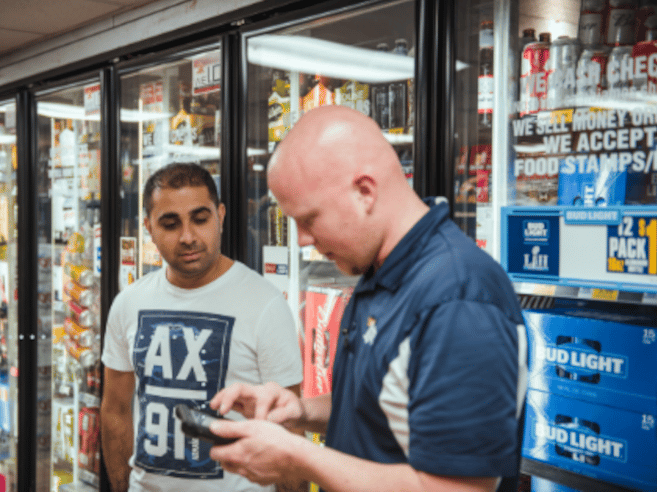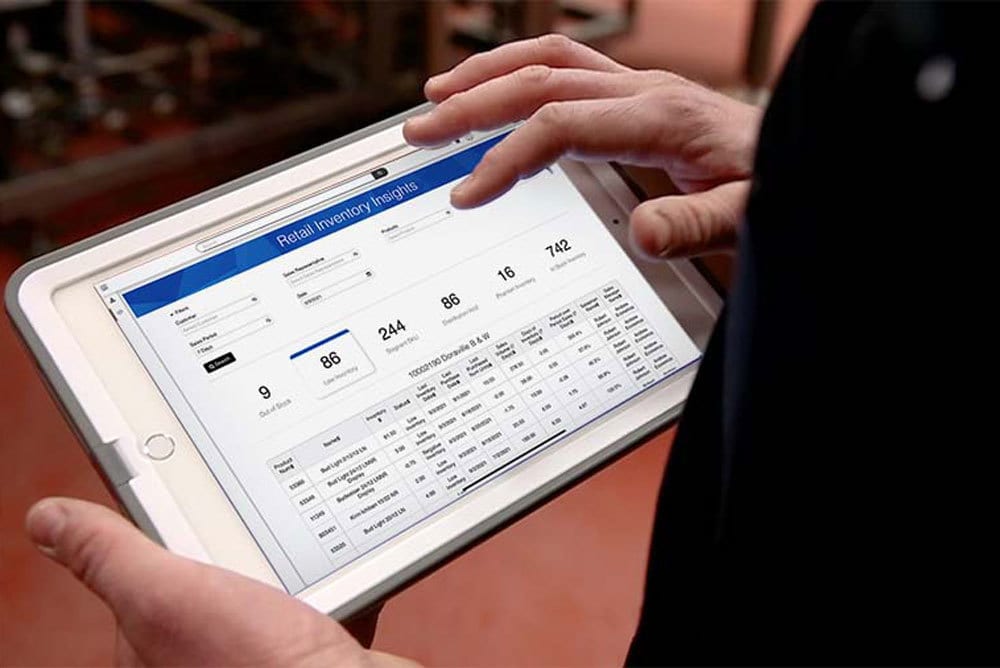Distribution
Reimagining distribution
By Lauren Sabetta
DSD technology leads to smart solutions for beverage distributors
(Image courtesy of Getty Images)
Legendary basketball coach Pat Riley, who has won five NBA championships as a head coach, is quoted for having said: “A particular shot or way of moving the ball can be a player’s personal signature, but efficiency of performance is what wins the game for the team.”
When it comes to moving product or distribution within the beverage industry, experts note that direct-to-store-delivery (DSD) solutions not only help distributors effectively “win the game,” but also retailers, wholesalers and sales rep teams alike.
With the proliferation of SKUs, the sales rep’s job becomes more difficult with increased wholesaler portfolio depth, says Cam Koorangi, eCommerce sales manager at Encompass Technologies, Fort Collins, Colo.
“They have to educate retailers on more items each week,” he explains. “With increased DSD solutions, retailers can now view distributors’ complete product catalogs including new items. They can see brand information, including images, brand names and brand descriptions, potentially increasing a wholesaler’s exposure to that retailer each time they use a DSD solution.”
Further, with increased consumer demand, Koorangi notes that retailers need to have broader product availability, and wholesalers want the ability to service those retailers more efficiently.
By streamlining the sales process Encompass’ Paylink provides data that serve sales reps, offering more time to sell and less time counting, it says. (Image courtesy of Encompass Technologies)

“Solutions that aid with inventory, merchandising, and forecasting automation are hot topics in our industry these days,” Koorangi says. “Tools like Retail Insights provide sales reps with real-time inventory data from connected retailers, enabling smarter decision-making to mitigate out of stocks and reallocate a sales reps’ time saved to revenue-driving activities like relationship building, placement of more and new products, displays, and more.
“Inventory and forecasting automation are also rising in our industry to maximize sales and minimize empty shelves,” he continues. “Payment solutions like Paylink can accommodate a number of contactless solutions like ACH, credit card processing, and remote check capture, which can greatly reduce outstanding AR and create more efficient and consistent payments from retailers to wholesalers.”
Cory Knopp, vice president of sales at GoSpotCheck by FORM, Quincy, Mass, adds that, with suppliers still managing supply chain challenges, on-the-ground insights about in-store conditions can manage product swaps more efficiently.
“Without those insights, another brand could be slotted in and it’s extremely difficult to win back space,” Knopp explains. “This also makes them a better partner to retailers because they can track trends and advise on not only substitutions in the short-term, but also market-level SKUs that will drive more incremental sales based on the insights they’re collecting with execution software.
“Brands pay enormous amounts for consumer data for market trends, and performance data to understand sales trends, but may be lacking in execution data, which helps sales leaders understand results and pivot in real time,” he continues.
Meeting challenges with integrated solutions
With supply chain issues, market volatility and unpredictable consumer demand, experts note that integrated DSD solutions can address the many challenges distributors face.
“Reps want one unified experience — many have to use several apps to complete their work each day,” GoSpotCheck’s Knopp says. “Apps that integrate with other systems and give reps what they need at their fingertips will win.
“With increased DSD solutions, retailers can now view distributors’ complete product catalogs including new items. They can see brand information, including images, brand names and brand descriptions, potentially increasing a wholesaler’s exposure to that retailer each time they use a DSD solution.”
— Cam Koorangi, eCommerce sales manager at Encompass Technologies
“The continued innovation with computer vision AI and image recognition are also a key trend to watch in DSD technology, which also extends to hardware applications,” Knopp continues. “Smart shelves, sensors, and cameras — in-store or on a rep’s mobile device — are the most efficient way to collect in-store data today and free up reps’ time to sell and relationship-build. AI can be trained to detect, recognize, and analyze products and prices in photos and provide insights within minutes about where reps should make adjustments to drive sales, adjust pricing, or protect category erosion.”
Moreover, with global beverage teams using data from online and in-store to perfect omnichannel retailing, Knopp points to DSD technologies’ ability to measure the impact of eCommerce and digital loyalty offers in-store — informing brick-and-mortar merchandising innovation, pricing strategies, and more.
“AI will be the most significant technological advancement since the internet, and deploying it to make DSD teams more efficient and effective in the field will deliver top and bottom line results,” he says.
Choosing the right solutions
With ease of use, speed to insights, time to value, and a track record of success with other distributors as key for operations, experts highlight various factors to take into account before choosing DSD solutions.
The Encompass Retail Insights inventory feed identifies growth opportunities by forecasting sales levels, future demand for products, and more, the company says. (Image courtesy of Encompass Technologies)

Encompass’ Koorangi suggests that wholesalers make decisions based on what can provide them with the smartest ways to do things, adding that it no longer is enough for an operation to simply be efficient.
“Wholesalers need to make decisions based on what will make their organizations smarter in addition to efficiency,” he says. “Will this solution(s) integrate seamlessly with my existing system, or do I need to invest in any other software or hardware to help the integration? How will the integration of systems work in the future?
“Efficiency is still important, but when monotonous tasks like payment collection, excessive store visits, and inventory counting no longer take up employees’ time and mental bandwidth, wholesalers should look to solutions that will bring them to the next level,” Koorangi continues.
Further, with tools like Encompass’ DSDLink, Koorangi notes that operations are empowered with product knowledge — freeing sales reps to have business-driving conversations with their customers rather than just checking boxes.
Moreover, Retail Insights opens sales reps to knowledge about exactly what is on the shelves at their retail accounts and how quickly each SKU is selling, Koorangi adds. “This enables smarter decisions to maximize and optimize shelf space not just with products, but with the right products,” he says.
When it comes to reducing accounting errors by eliminating the need for manual reconciliation,
“PayLink creates a seamless payment experience to save time and resources chasing payments,” Koorangi notes.
Yet, perhaps one of the greatest powers is a fully integrated system, he says.
“The ability to access and manage data through reporting opens you to possibilities that will otherwise be siloed or inaccessible,” Koorangi says. “Integrated, cutting-edge tools like this are empowering the industry not to just become more efficient, but smarter. And a smarter industry means a stronger industry.” BI

April 2023 | bevindustry.com